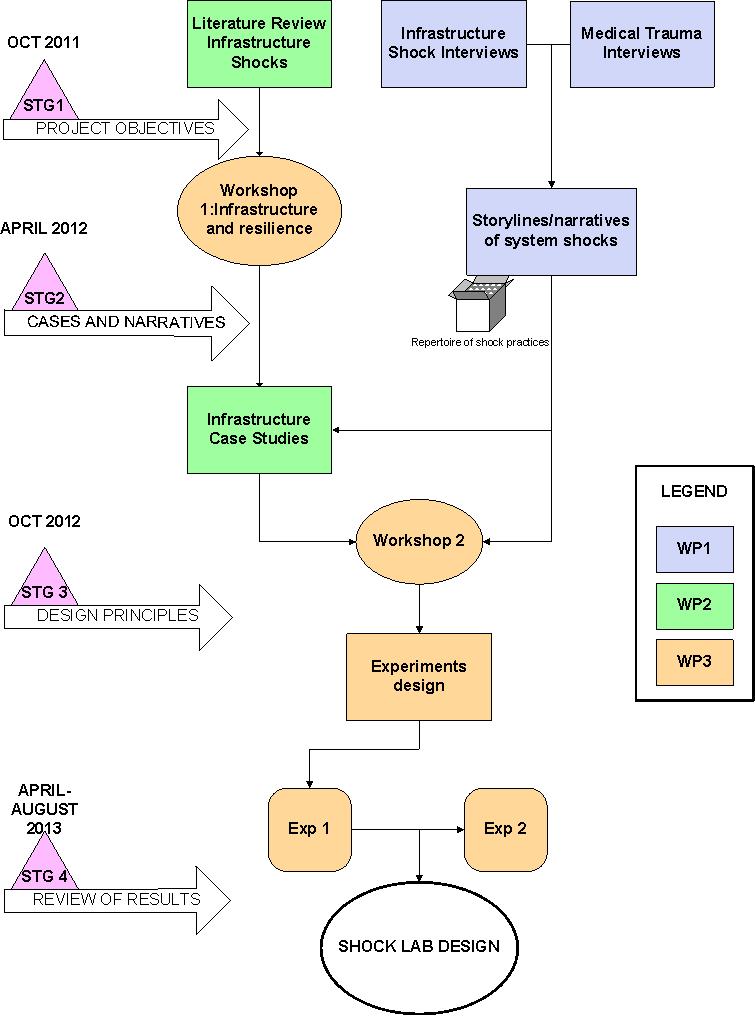About our Project
The hypothesis of the research is that the study of infrastructure shocks through medical allegories will enable a fundamental shift in thinking of current infrastructure to understanding it as a system of systems of infrastructural interconnections that can help foster sustainable futures.
The project team propose that system shocks constitute opportunities to radically 'shift minds' by reevaluating the relationship between demand and provision of infrastructure. Shocks provide drivers to re-imagining the scale of resource use, particularly in terms of delivering core utilities, as we move into an era of resource scarcity. The SHOCK (not) HORROR project uniquely unpicks the potential for radical change through the allegory of medical trauma to challenge infrastructure stakeholders to move out of their comfort zone, challenge the current organization of infrastructure in silos, rethink the nature of shocks and devise new and transformative ways of thinking about infrastructure. Specifically it will develop a new concept of infrastructure resilience, both by using shocks as a way of both highlighting the interdependencies of existing infrastructure systems (identifying the weak points), and improving infrastructure by restoring it to a better state after the shock (rather than re-instating what was there before the shock).
The project team is connected by the belief that the study of infrastructure shocks can help develop new holistic models of infrastructure. We approach infrastructure problems from very different discipline perspectives (civil engineering, design for sustainability and socio-technical systems research) but aim to build on this diversity to generate new and insightful outputs which will synthesise knowledge across these different fields of study.

.
PhD Ukraine MSWord 75Kb
PhD Ukraine